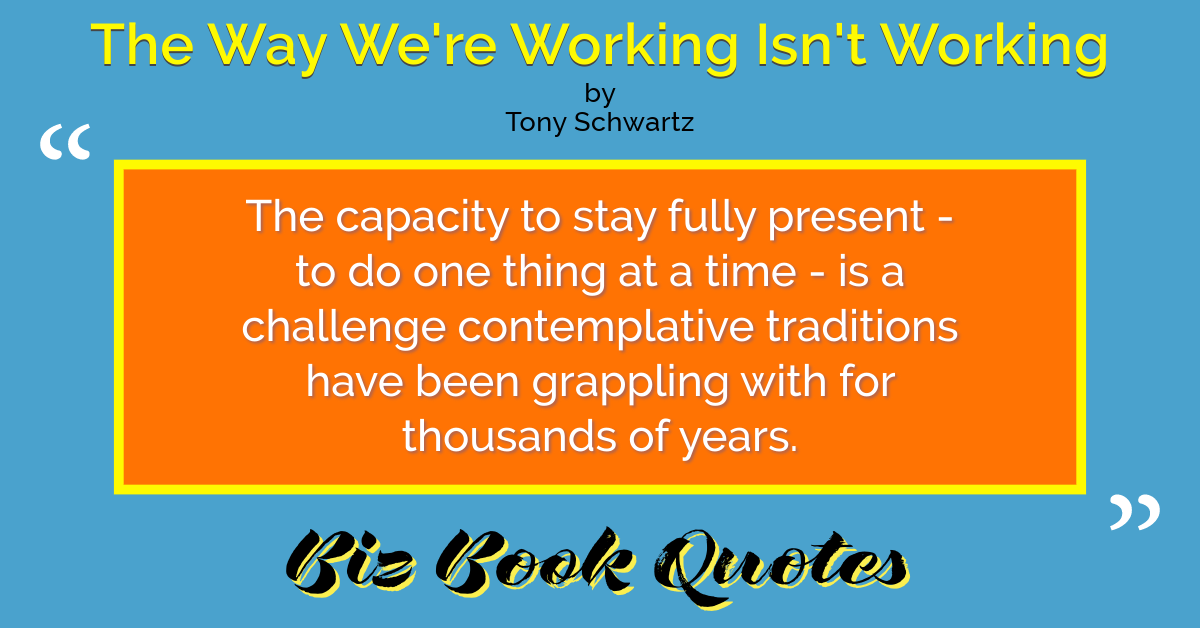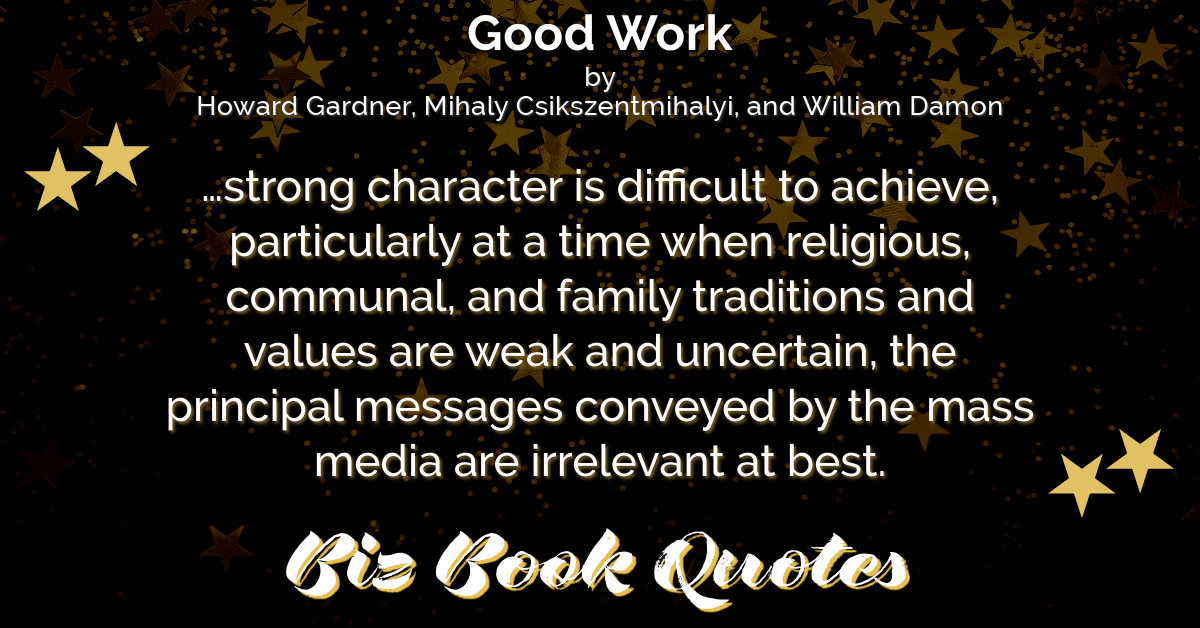 |
…research… suggests that takers often have the confidence to generate original ideas that buck traditions… But does this independence come at a price?
|
67 |
 |
People who operate from a traditional concept of position and title believe that a large amount of power is granted to them based on their title alone.
|
020 |
 |
…we have a mountain of evidence that suggests [digital] works best in concert with traditional media.
|
039 |
 |
…the real battle is about how well you integrate and the extent to which, by treating digital and traditional media as additive, you can be a better communicator.
|
039 |
 |
…senior leaders are now more important than ever, but the role is very different from that of the traditional heroic decision maker.
|
222 |
 |
Letting go of the clock can also be difficult because we’ve traditionally used time to measure fairness.
|
096 |
 |
Socially acceptable excuses are the truths about our time that in a traditional work environment we dare not utter.
|
100 |
 |
…many managers would rather have their employees in the building during traditional working hours doing nothing than out of their sight and being productive for their own lives.
|
101 |
 |
The capacity to stay fully present – to do one thing at a time – is a challenge contemplative traditions have been grappling with for thousands of years.
|
197 |
 |
…strong character is difficult to achieve, particularly at a time when religious, communal, and family traditions and values are weak and uncertain, the principal messages conveyed by the mass media are irrelevant at best.
|
246 |